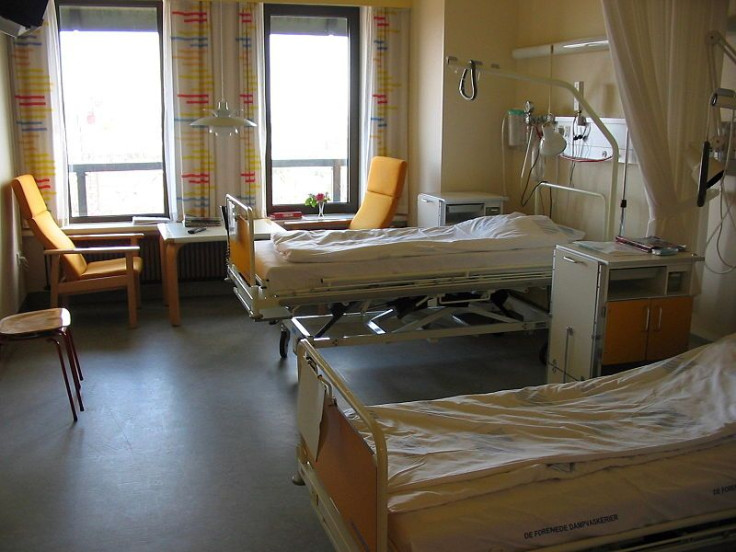Hospitals Provide Worse Care For Those With The Means to Pay

You would think that a person paying five percent of the total cost of their surgery (with insurance picking up the 95 percent remainder) would get the same level of care as a person paying 15 percent.
But a study published today in the Journal of the American Medical Association found otherwise. And it's not what you think. It turns out that the more you are charged for your surgery, the more likely it is you'll need to go back into the hospital.
The striking study, led by Dr. Sunil Eappen of Harvard Medical School, analyzed nearly 35,000 surgical discharges from a 12-hospital system. The results are complex but may become integral in health care policy analyses moving forward. The study's authors argue that while effective methods for reducing surgical complications are well-known, "hospitals have been slow to implement them."
And although the authors do not say it straight out, what the study shows is that "hospitals in the United States can profit handsomely from post-surgical complications, even if the hospitals could avoid them," according to Dr. Uwe Reinhardt in an accompanying editorial.
The goal was to evaluate how fixed and variable hospital costs could affect post-surgical outcomes. To figure this out, the researchers decided to look at four primary payer types:
1. Private insurance (what you get from work or through a private insurance plan)
2. Medicare (the government-run national social insurance program that covers all Americans over 65, as well younger adults with disabilities)
3. Medicaid (also government-run, but is a health program for families and individuals with low income and resources)
4. Self-payment (this refers to paying out of pocket)
Of 34,256 surgical discharges, 1,820 patients (or 5.3 percent) experienced at least one health complication related to the surgery.
First, the influence of the fixed costs of surgery: no matter who was paying for the surgery, if the cost of the surgery was higher, it meant that there was more likely to lead to post-surgical complications.
Second, the influence of variable costs of surgery: If private insurance or Medicare paid for the surgery, the more a patient contributed, the more likely he or she would experience post-surgical complications. However, if Medicaid paid for the surgery, or if the patient paid fully out of pocket, it was the opposite: the more the patient paid, the less likely he or she would experience complications.
How should this be interpreted?
Basically, hospitals may be classifying patients into two categories, and providing different levels of care to each. The first group is made up those patients with low-quality coverage: Medicaid or those paying out-of-pocket. The hospital assumes that these patients will not be able to afford or pay high premiums for future coverage. As a result, it is in the hospital's best interest to do whatever it takes to reduce the possibility of future complications — doing so will improve their near-term financial interests, particularly if they have been shown to be able to contribute less towards the payment of the initial surgery.
The second group is comprised of those with high-quality coverage: private insurance or Medicare. The hospitals assume that these patients will be able to afford to come back into the hospital to get any future problems taken care of, particularly if they have already been shown to be able to contribute more towards the payment of the initial surgery. So, even though they may have the means to reduce complication risk, the hospital won't for this group, because doing so may mean the hospital could miss out on more money. In other words, in this case, more complications=more profit.
"Although the authors do not expressly say so," wrote Reinhardt, "readers may infer that the associated financial losses may discourage hospitals from reducing avoidable post-surgical complications as vigorously as they could."
All of this is not to say that the hospitals are purposefully hurting patients. Rather, that the model is broken. In a situation where a hospital is running as a for-profit center, decisions will be made by the market, and the market may not be great for your health.
Published by Medicaldaily.com



























